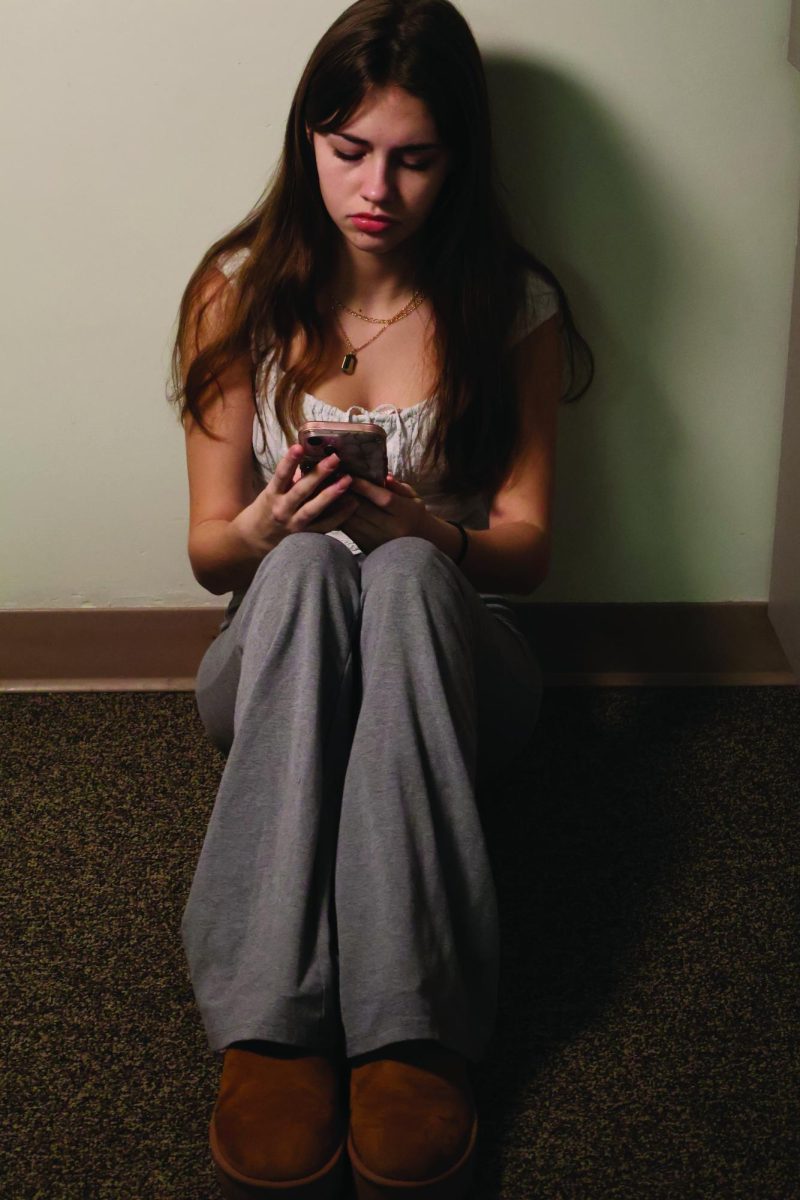TikTok, a social media app used by Bellevue East students, is set to be banned or sold starting January 19, 2025, unless stopped by new president-elect Donald Trump.
In March 2024, legislation that would ban TikTok or require it to be sold to a U.S. company was passed in the U.S. House of Representatives but not the Senate. The legislation was revived as a part of a House foreign aid package and was signed into law on April 24, 2024. U.S. political officials think that TikTok poses a national security risk.
“The Chinese intelligence has access to what everybody’s doing on TikTok and we don’t like it,” congressman Don Bacon said. “Secondly, they make TikTok to be corrosive to America’s youth. That’s why Congress passed the legislation, you know, to get it out from under Chinese control, but the primary reason is that we don’t want it to be used for intelligence purposes.”
TikTok is a social media app that allows users to create, watch, and share short videos shot on mobile devices. TikTok started in September 2016 and over the years has grown popular, gaining over 1 billion monthly active users globally, with approximately 150 million in the U.S.
“I think social media in general is scary,” instructor Rebekah Sidzyik said. “People with little knowledge – or none at all – or completely false information, are given the same amount of time and weight as experts in their field, and they are influencing our economic, political, and social landscapes.”
Because TikTok is owned by a Chinese internet technology company, known as ByteDance, U.S. officials are worried that China is influencing Americans through the app. Therefore, the law stipulates that ByteDance must sell TikTok by January 19, 2025 under the threat of being shut down. U.S. officials are also concerned that Chinese intelligence has a possibility of using such information that is gathered from millions of U.S. citizens against them.
“Well, they can use it for blackmail, they can use it to study trends, our adolescents; they may be able and they are obviously able to put manipulative messages on TikTok to try to persuade Americans to be more anti-Israel, more pro-Hamas, anti-Taiwan and things like that,” Bacon said.
The law also says that distributors like Apple have to stop offering TikTok and it requires cloud services to withhold infrastructure that is needed for TikTok to work. Companies who violate this risk a penalty of $5,000 for each user who accesses TikTok; with the 150 million who use TikTok currently, companies could face up to millions.
“I think this TikTok proposal removes a small drop in a sea of issues,” Sidzyik said. “I honestly do not know the solution. I believe in free speech. However, this flood of false information is, in my opinion, washing away the tenets of our democracy. The only thing I have found that helps stop this flow is to block it with education and knowledge.”
According to the Pew Research Center, a non-partisan, non-advocacy fact tank, TikTok is where one-third of young people get their news. Exploding Topics, an algorithm that monitors trends, reported that around 1 in 4 U.S. teenagers spend 2-3 hours a day on TikTok.
“When I was in high school, there were three channels upon which to get our news,” Sidzyik said. “They all gave generally unbiased accounts of the big information for the day. Now, we live in an age where we get more information than ever before and yet we are less informed than we have ever been. That is due, mainly, to social media.”
The TikTok law was signed by President Joe Biden, but considering that the U.S. has just introduced new President-elect Trump, TikTok’s fate has the possibility to be changed. Trump has a TikTok account with around 14.7 million followers and pledged numerous times during his campaign that he would save the app.
“I thought it was sort of silly because he was against TikTok at first and then he ended up using it for his campaign and so I would have recommended against it,” Bacon said.
According to abcnews.go.com, the news division of the American Television network, Trump’s justice department could essentially opt against enforcement of the law, and reassure the likes of the companies that in the event of a violation they would not face prosecution, essentially going around the law. Stevens doesn’t think that TikTok should have been banned in the first place.
“I thought it was stupid,” sophomore Taelor Stevens said. “Honestly, I thought it was ignorant cause there are so many other things that are going on in our country and in our world that should be taking priority over this.”
There are a number of things Trump could do, including helping TikTok owners find a U.S. buyer, but it may be irrelevant if those companies decide to comply with the original law because they could be at legal risk.
“I hope China decides to sell TikTok and move it to a U.S. company or some company outside of China,” Bacon said. “That was the whole purpose of the legislation. If it becomes owned by another company, it shouldn’t be a problem. Say Facebook buys TikTok, I don’t think it will change people’s ability to raise money through TikTok.”
Some use TikTok as a source of income and to connect with people. For example, Stevens is the social media manager for the East Theater Department and uses TikTok to advertise. The account has 157 followers.
“We have more followers on TikTok than we do Instagram and we get more views on TikTok,” Stevens said. “I had around two people on all three nights [of the play] that came and told me that they came because they saw the play getting advertised.”
Bacon encourages East’s students to be aware of TikTok and its contingency. Bacon also thinks students should be aware of what you are posting on social media.
“I would say, be aware that China is monitoring everything you’re doing and they say that it goes on a giant database and that they will have your data for the rest of your life or as long as it’s a communist China’s country,” Bacon said, “So you should be aware that you’re being monitored. I would also encourage, you know, to make sure you have a balanced life. We just have so many folks now that don’t hardly get any physical exercise, and it’s bad for their long-term health.”






